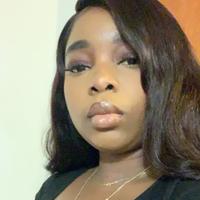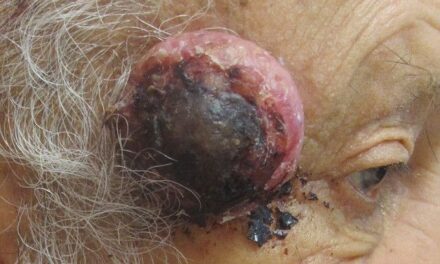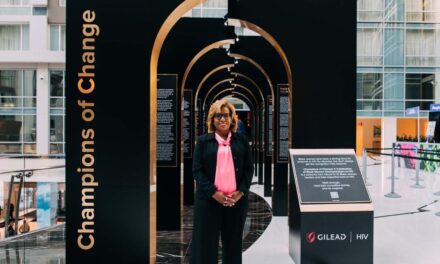When Tyrone Byrd boarded the plane for Dartmouth College in 1969, unsure of his major but dead certain he would play in the NFL, he did the very thing his mother told him not to do: He looked back. An over-the-shoulder glance of his tall, lean frame caught the eye of his mother, Kizzie Byrd. Emotions welled.
Fifty-four years later, Tyrone remembers the tears. He remembers the dream he carried out of San Antonio, the family he left behind. And he remembers the life-altering events and achievements that so impressed classmates, he was invited to share them ahead of his 50th college reunion last month.
“Next to marrying Vicki,” Tyrone told an alum working on the reunion, “Dartmouth is probably the best thing that ever happened to me.”
T-Byrd, as he is known to friends, was a star wide receiver, a cum laude graduate of the Ivy League school. Ambitious and focused, he played briefly with the Green Bay Packers, became a successful banker and, currently, an equity partner for a Houston energy company. Now 72, he is popular at college reunions, where conversations periodically turn to “The Shockley Incident,” an event that galvanized Black students, energized the Class of 1973 and accelerated change at Dartmouth that’s felt today.
Get the latest San Antonio news delivered to your inbox for free.
On Oct. 15, 1969, Nobel laureate William Shockley arrived to lecture on race and IQ and the genetic inferiority of Black people. Byrd and more than two dozen African Americans staged a creative protest, which made national news. According to media reports and Dartmouth Library archives, 17 students were suspended.
One month after their son enrolled, William and Kizzie received a letter from the school about Byrd’s role. “We didn’t send you to college,” they told him, “to become a radical.” Byrd never aspired to be one. He carried a peaceful demeanor and 4.0 GPA at Jefferson High School. When he won the Tommy Nobis Award, given to the school’s best athlete, Byrd appeared dumbfounded. “I was very surprised and thrilled,” he told the school newspaper.
Humble. Intelligent. Talented. Byrd looked like a model student-athlete, except few coaches considered him college football material. He stood 6-foot-1, weighed 175 pounds, ran the 40-yard dash in 4.5 seconds and had good hands. Unfortunately, Byrd played in a ground-oriented offense and enjoyed more success on defense, where he starred as an all-district safety. Only one school, Texas Lutheran, offered a football scholarship.
A daunting start at Dartmouth
Dartmouth, meanwhile, was launching an experiment, dispatching alumni across the country to recruit more Black students. One alumnus found Byrd in San Antonio. Others found 15 street-toughened 22- and 23-year-olds from Chicago, most connected with the Vice Lords gang.
As the turbulent 1960s drew to a close, race and culture did not meld smoothly in the Northeast United States.
Hanover, New Hampshire, was small, rural, mostly white. Byrd came from a large, urban, mostly Hispanic neighborhood. Two times the population of Hanover (then about 8,000) could fit into Prospect Hill, where Byrd lived on the West Side.
Byrd did not like the location of his freshman dorm, French Hall, a 1-mile walk from classes. Nor was he happy with social life options at an all-male college. To find a date, students ventured to all-women’s colleges — Smith, Wellesley and Mount Holyoke — more than 100 miles south in Massachusetts. Byrd, however, had no transportation.
The Chicago students? One Dartmouth publication reported they brought handguns to campus — “without incident” — and played James Brown music from dorm-room stereos. “It was challenging for many of us Black students,” Byrd told The Dartmouth Oral History Program in 2021, “because they were men and we were just young teenagers.”
The New York Times heralded the arrival of Byrd and his fellow freshmen with a headline: “Dartmouth’s Class of ‘73 is 10% Black.” From the story: “… among the 855 freshmen who arrived here Monday are 90 Negroes. This in a school that has graduated fewer than 150 Black men in its 200-year history; in a town that has only three or four Black families, and in a rural setting two and a half hours by car from the nearest city.”
The isolation hurt. Football hurt, too. Competing when freshmen were ineligible for varsity action, Byrd made the freshman B team. Less talented receivers made the A team. Frustrated, he considered switching to defense, and then, as other freshmen quit, Byrd considered that option as well. Aching for home, a memory flickered, a Vince Lombardi quote above a Jefferson locker room door: “Winners never quit and quitters never win.”
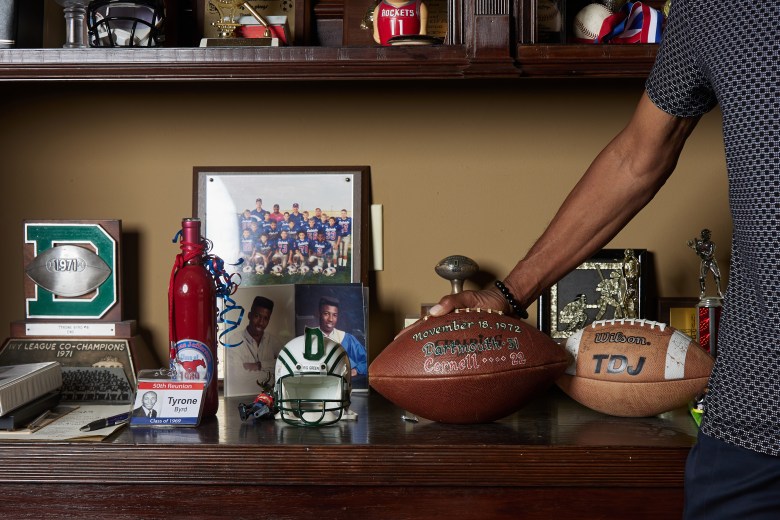
A campus protest
Inspiration soon gave way to anger. Dartmouth had invited Shockley to deliver a lecture at a meeting of the National Academy of Sciences. He was to speak about genetic differences in intelligence among the races. He had proposed paying government cash for people with genetic deficiencies who would undergo sterilization. Outraged, Dartmouth’s Afro American Society devised a protest.
“We felt that a peaceful, effective solution was to clap him down,” Byrd said.
From the balcony of Silsby Hall, Byrd and an estimated 30 Black students stood and applauded when Dartmouth President John Dickey introduced Shockley. After the customary welcome, most applause ceased but the protesters clapped on. Dickey asked them to stop. They refused. Faculty and administrators pleaded — even shouted — for quiet. The demonstration, the Associated Press reported, lasted an hour.
“It became evident they had to cancel the meeting,” Byrd said. “There were some white people who also joined us. Our objective was achieved.”
Dartmouth investigated and announced that 17 students had been placed on probation. Byrd was not one of them. To this day, none of his protesting classmates can name anyone who was “suspended,” as the media reported, or disciplined with probation, as Dartmouth had claimed.
What he does know is this: The Black students who stood up to Shockley became doctors, lawyers, professors, entrepreneurs. One protester, Willie Bogan (Class of 1971), became a Rhodes Scholar and associate general counsel for McKesson Corp.
As a Black freshman, Ben Wilson agreed with the position of the protesters but didn’t participate. “I didn’t have the courage they had,” said Wilson, a retired lawyer, former Dartmouth trustee and uncle of Denver Broncos quarterback Russell Wilson. “I was afraid of getting kicked out of school.”
Rising above the challenges
Wilson admired Byrd’s unflinching resolve, a trait passed down through generations. The great-grandson of a slave-turned-minister, Byrd grew up in a hard-working, church-going family. His father, a train station porter, served Antioch Baptist as a lead trustee and treasurer. His mother, a civil service worker, served as an usher. Byrd’s older brother, Vashon, was one of seven Black students to integrate Jefferson in 1955. As a political science major at St. Mary’s University, Vashon protested against the whites-only lunch counter at Woolworth’s and participated in the city’s first Martin Luther King Jr. March decades later. He fought against police abuse and advocated for better housing and streets for the poor.
“With my background,” Byrd said, “I felt there was nothing I could not accomplish through hard work, God-given intelligence and faith. I know my father and mother prayed for me a lot while I was at Dartmouth and throughout my life’s challenges.”
Byrd overcame a host of challenges. He rose to the freshman A team at Dartmouth, made second string varsity as a sophomore and became the team’s top receiver his last two seasons, helping the Big Green win three Ivy League championships. In a 1971 matchup with unbeaten Cornell and All-American running back Ed Marinaro, Byrd caught the game-clinching touchdown pass in Dartmouth’s 24-14 victory. “He was outstanding,” recalled Alan Kraus (‘73), who briefly played with Byrd before switching to rugby. “The best receiver we had.”
Undrafted, he played one year of semi-pro ball in New England, then signed a $25,000 free agent contract with the Packers. He could taste the dream. During a drill in training camp, a pass wobbled toward Byrd. A safety hit him hard. Byrd wound up in the hospital, blood vessels broken in his right eye. The Packers waived him. “I’m lucky I didn’t lose my eyesight,” he said.
His football career over, Byrd earned an MBA from the University of Chicago and became a bank vice president. He transitioned to the oil and gas industry, rose to treasurer for Texaco’s worldwide exploration and production company and, later, to chief financial officer for Osyka Corp., only to lose the job in the Great Recession. Undaunted, he became an equity partner with Azimuth E&P Investments, a company in Houston, and later received a chilling diagnosis: prostate cancer. Byrd underwent nine weeks of radiation in 2018. “I’ve been in remission since then,” he said.
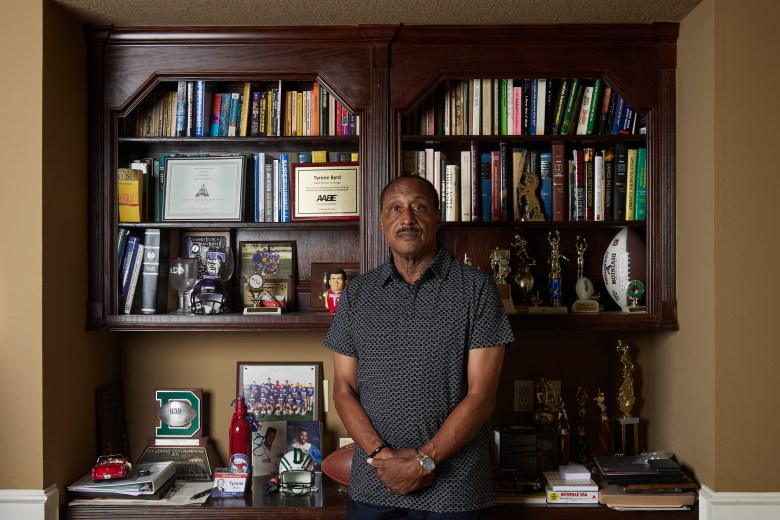
‘A sense of achievement’
Change came slowly to Dartmouth in its first 200 years. It accelerated soon after Byrd and his cohorts arrived. In four years, a white, all-male student body became coeducational and more racially diverse. When Byrd’s class of 846 graduated on Baker Lawn, 37 were women and seven were former Chicago gang members.
“I am friends with many of the [former] Vice Lord gang members today,” Byrd said, recalling several who became schoolteachers. “Our class was a test pilot to see if this experiment was going to work. There was a lot of pride among the graduating Blacks. We were hugging and kissing one another. It was a sense of achievement.”
Dartmouth bears no resemblance to the college of 1969. In fall 2022, more than 3,000 students were women, 48.7 percent of total enrollment. Asian Americans made up 13.5 percent of the student body, Hispanics 9.06 percent, African Americans 5.2 percent, Native Americans 1.16 percent. Dartmouth’s sports teams had been known unofficially as the Indians until the name was dropped in 1974.
Change did not occur without struggle. The culture clashes and racial conflicts of Byrd’s era gave rise to a new Dartmouth, a college marked, in no small way, by the Shockley Incident. “The Black students did not feel it was morally right to allow someone like Shockley to come into our home and tell us that we were intellectually inferior,” said Byrd, who, like other protesters, believed Shockley intended to commit “group libel.” “We had enough challenges with affirmative action labels and the residual bad feelings over the murders of Martin Luther King Jr. and Malcolm X.”
Dartmouth has interviewed Byrd and others about the protest. The library has archived oral histories from students and professors as well as newspaper articles, which provide context of the times: Vietnam. Riots. Social unrest. College toughened and shaped Byrd in ways he did not expect. One of the first students he met, who was also Black, asked if he had boots, a horse, a cowboy hat and an oil well. Irritated, he asked the student, William Jacobs, where he was from. “The city,” came the reply. Which city? “There’s only one city,” Jacobs said, “that’s New York City.”
On campus, Jacobs was known as “Brooklyn” and went on to work for Xerox. He attended the Class of ‘73’s 50th reunion in June. Byrd missed it. He was helping Azimuth acquire a major oil property in Mississippi.
When Kizzie waved goodbye to her son at the airport in 1969, she could not have known the future he would forge. Now here he is, 10 years after her passing, an Ivy League graduate of distinction. When Dartmouth calls, Byrd answers. He has served on the school’s Alumni Council and helped the college select several trustees. He networks with graduates and helps reconnect alumni to his alma mater. He visits the campus as often as he can. Why?
Two thousand miles from Poplar Street, a young man stepped off his first airplane, found his way and made a home.


